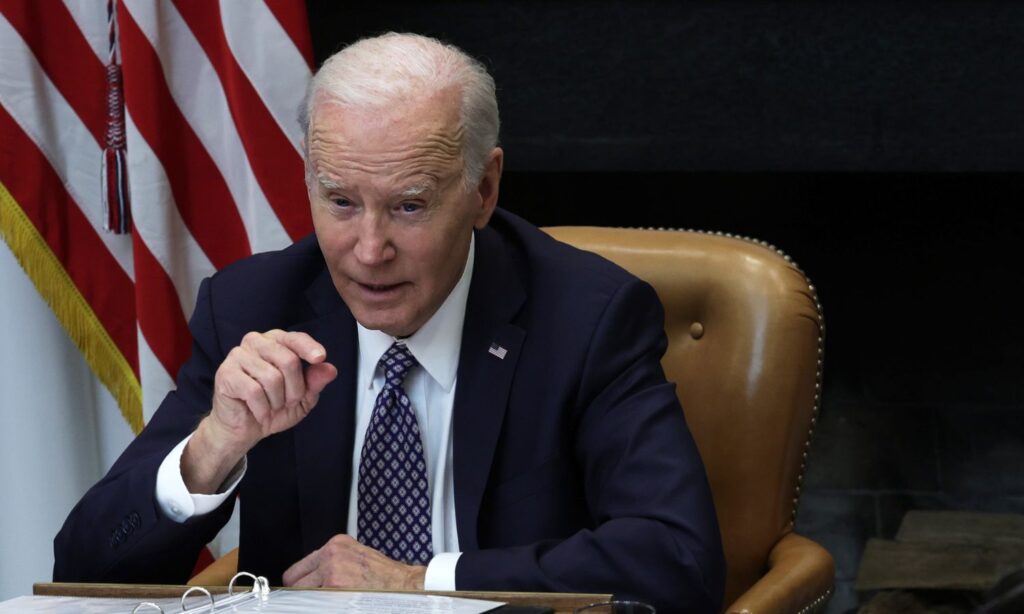The Biden administration intends to announce an easing of the sanctions imposed on humanitarian aid to Syria.
According to a report by Reuters citing sources familiar with the matter today, Monday, January 6, the United States will announce the easing of restrictions on providing humanitarian aid and other essential services, such as electricity to Syria, while maintaining the sanctions regime.
The Biden administration’s decision aims to pave the way for improving living conditions in Syria while maintaining US influence, according to Reuters.
The US Treasury spokesperson did not immediately respond to a request for comment, according to the agency.
The US House of Representatives approved the National Defense Authorization Act for 2025 on December 12, 2024, which included an extension of US sanctions imposed on Syria under the Caesar Act for an additional five years.
However, the bill has not been officially approved yet, as it awaits the president’s signature, and its passage by the House does not constitute an official endorsement that allows for its implementation.
Calls to lift sanctions
The leader of the new Syrian administration, Ahmed al-Sharaa, called on December 22, 2024, for the lifting of sanctions on Syria following the fall of the Assad regime and the formation of an interim government in Damascus, stating that Syria would not pose a threat to anyone and that the sanctions targeting the Assad regime should be lifted.
Similarly, the Syrian foreign minister in the Damascus caretaker government, Asaad al-Shibani, during a visit to Qatar on Sunday, January 5, called for the lifting of the economic sanctions imposed on Syria.
On its part, the Syrian Network for Human Rights (SNHR) called in a statement on December 16, 2024, for lifting the economic sanctions imposed on Syria while keeping individual sanctions on key figures associated with the former Syrian regime.
The network stated that continuing sanctions in the absence of the ousted Syrian regime would turn them from “a tool for accountability into an obstacle to Syrian recovery efforts.”
The Gulf Cooperation Council, in its final statement following the council meeting on December 26, called for lifting the sanctions on Syria, expressing support for all efforts and initiatives aimed at achieving a comprehensive and inclusive transitional process that realizes the aspirations of Syrians for stability, development, and a decent life.
The United States and several European countries imposed numerous sanctions on Syria under the Assad regime, the most notable being the Caesar Act under which the United States imposed sanctions on the Syrian regime following the leak of photos of 11,000 detainees in 2014, who died under torture in Assad’s prisons, which shocked the world at the time.
The Caesar Act stipulated sanctions against the Assad regime and many cooperating companies, in addition to Russian and Iranian entities supporting the regime.











